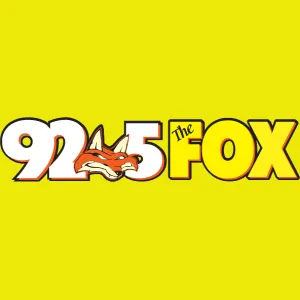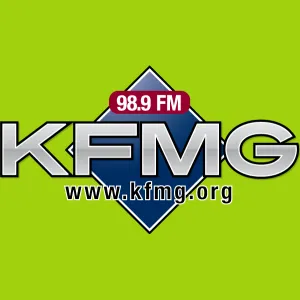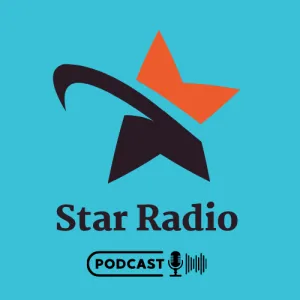Radio WFDD-FM
0
Partager
0
0
[
Écouter en direct
]WFDD (88.5 FM) is a public radio station located in Winston-Salem, North Carolina. It is the flagship National Public Radio station for the Piedmont Triad. Owned by Wake Forest University, it serves 32 counties in North Carolina and Virginia. It also operates a translator on 104.7 FM in Greensboro.
WFDD has its roots in a five watt pirate radio station, WAKE. operated illegally by Wake Forest students from a rooming house beginning in the fall of 1946, while the school was still located in Wake Forest, North Carolina. When students began... Voir plus
Winston Salem FM|88.5
336-758-8850
[email protected]
88.5 WFDDP.O. Box 8850Winston-Salem, NC 27106
http://wfdd.org/wfdd3.php
Vues:
30Radios recommandées:
WFDD (88.5 FM) is a public radio station located in Winston-Salem, North Carolina. It is the flagship National Public Radio station for the Piedmont Triad. Owned by Wake Forest University, it serves 32 counties in North Carolina and Virginia. It also operates a translator on 104.7 FM in Greensboro.
WFDD has its roots in a five watt pirate radio station, WAKE. operated illegally by Wake Forest students from a rooming house beginning in the fall of 1946, while the school was still located in Wake Forest, North Carolina. When students began asking for better broadcast range, Wake Forest president Dr. Thurman D. Kitchin took steps to help making the station official. With the help of student fundraising, the station was fully licensed by 1948.
After the discovery that the WAKE letters were already in use, the station changed its calls to WFDD, which stood for "Wake Forest Demon Deacons." Since the schools' sports teams were an important part of the station's programming, this seemed appropriate. Other programs included "Deaconlight Serenade," a student music program which included the part of the name of a Glenn Miller hit. This program remained on the air as "Deaconlight" until 1981. The WAKE letters returned in the 1980s on a student-run AM station, which later became available on the Internet.
After Wake Forest College moved to Winston-Salem, WFDD returned to the air with a 10-watt signal in 1961. The signal increased to 36,000 watts in 1967, the year the Corporation for Public Broadcasting began. WFDD became one of only 10 stations to received federal funding from the new organization.
On May 3, 1971, WFDD became a charter member of NPR, and the first NPR member in North Carolina. Dr. Julian Burroughs, who had helped put the station on the air, added his knowledge to that of other station officials around the country to determine what NPR would become.
On May 5, 1989, WFDD lost its tower along Business 40 in Winston-Salem when severe storms struck the area. The station returned to the air with reduced power, but did not fully cover the market until a new tower was completed north of Lexington, which would be shared with WWGL.
For two years in the 1990s, WFDD aired Wake Forest football and basketball games, but many listeners complained.
In 2005, WFDD began airing more talk programming, with no classical music during the day on most weekdays. With less classical music, donations dropped. The station added a classical music service on HD radio.
Despite the new transmitter location, WFDD's 60,000-watt signal results in spotty coverage in some of the eastern portion of the Triad, including parts of Greensboro itself. To make up for the shortfall in coverage, the station has long operated a translator in downtown Greensboro on 104.7. Much of the eastern Triad gets a better signal from WUNC, the flagship NPR station for the Triangle.
WFDD has its roots in a five watt pirate radio station, WAKE. operated illegally by Wake Forest students from a rooming house beginning in the fall of 1946, while the school was still located in Wake Forest, North Carolina. When students began asking for better broadcast range, Wake Forest president Dr. Thurman D. Kitchin took steps to help making the station official. With the help of student fundraising, the station was fully licensed by 1948.
After the discovery that the WAKE letters were already in use, the station changed its calls to WFDD, which stood for "Wake Forest Demon Deacons." Since the schools' sports teams were an important part of the station's programming, this seemed appropriate. Other programs included "Deaconlight Serenade," a student music program which included the part of the name of a Glenn Miller hit. This program remained on the air as "Deaconlight" until 1981. The WAKE letters returned in the 1980s on a student-run AM station, which later became available on the Internet.
After Wake Forest College moved to Winston-Salem, WFDD returned to the air with a 10-watt signal in 1961. The signal increased to 36,000 watts in 1967, the year the Corporation for Public Broadcasting began. WFDD became one of only 10 stations to received federal funding from the new organization.
On May 3, 1971, WFDD became a charter member of NPR, and the first NPR member in North Carolina. Dr. Julian Burroughs, who had helped put the station on the air, added his knowledge to that of other station officials around the country to determine what NPR would become.
On May 5, 1989, WFDD lost its tower along Business 40 in Winston-Salem when severe storms struck the area. The station returned to the air with reduced power, but did not fully cover the market until a new tower was completed north of Lexington, which would be shared with WWGL.
For two years in the 1990s, WFDD aired Wake Forest football and basketball games, but many listeners complained.
In 2005, WFDD began airing more talk programming, with no classical music during the day on most weekdays. With less classical music, donations dropped. The station added a classical music service on HD radio.
Despite the new transmitter location, WFDD's 60,000-watt signal results in spotty coverage in some of the eastern portion of the Triad, including parts of Greensboro itself. To make up for the shortfall in coverage, the station has long operated a translator in downtown Greensboro on 104.7. Much of the eastern Triad gets a better signal from WUNC, the flagship NPR station for the Triangle.
© LogFM.com, 2009-2025 (2026-02-26,05:23:03)





